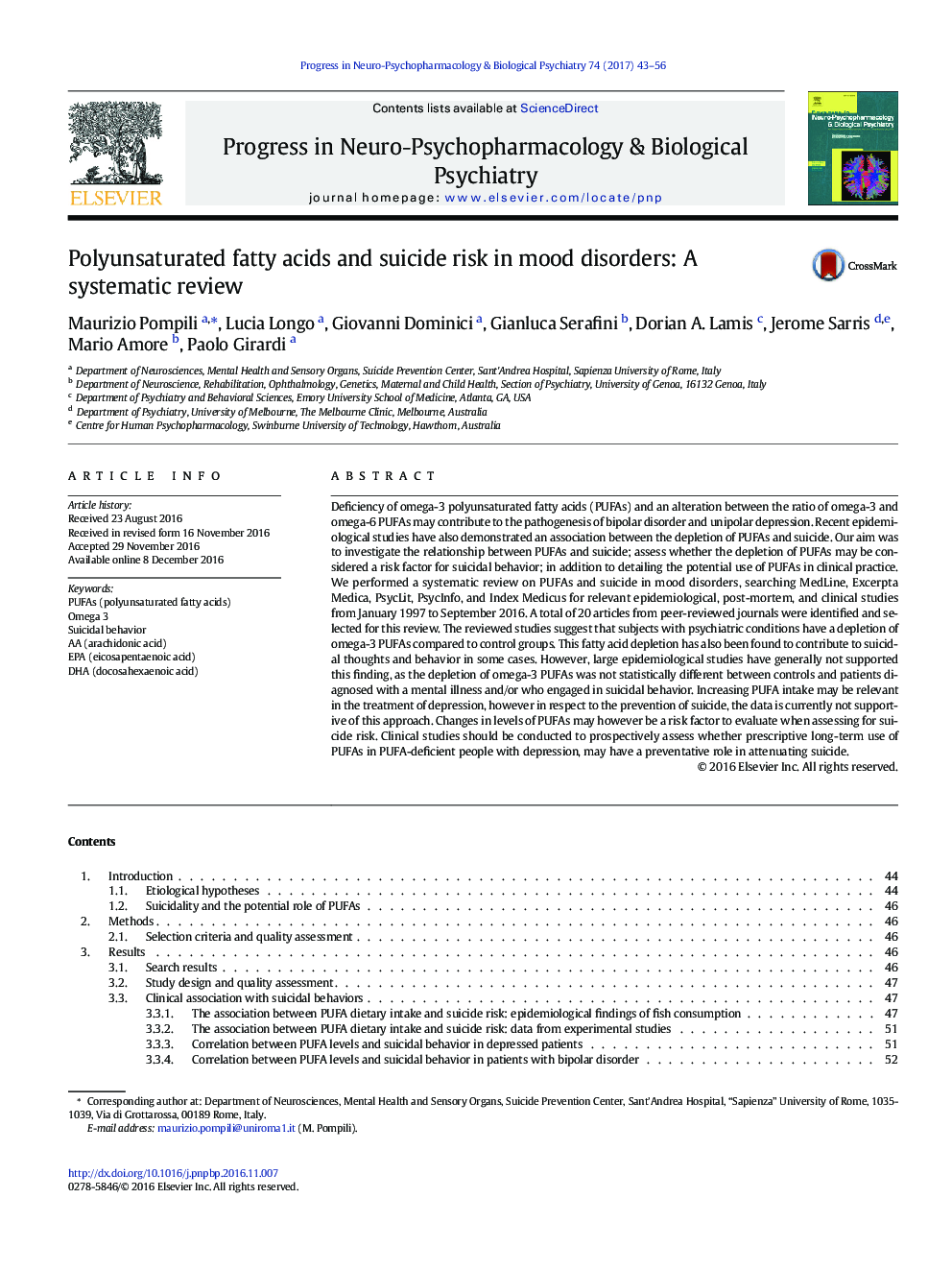| کد مقاله | کد نشریه | سال انتشار | مقاله انگلیسی | نسخه تمام متن |
|---|---|---|---|---|
| 5558115 | 1561020 | 2017 | 14 صفحه PDF | دانلود رایگان |
- Deficiency in polyunsaturated fatty acids have been reported as implicated in the onset psychiatric disorders and as a contributor factor to suicide risk;
- Some evidence support the use of omega-3 fatty acids in the treatment of mood disorders, borderline personality disorders and suicide risk;
- Consumption of food containing polyunsaturated fatty acids as well as prescription of nutritional supplements or nutraceuticals may help in reducing suicide risk
Deficiency of omega-3 polyunsaturated fatty acids (PUFAs) and an alteration between the ratio of omega-3 and omega-6 PUFAs may contribute to the pathogenesis of bipolar disorder and unipolar depression. Recent epidemiological studies have also demonstrated an association between the depletion of PUFAs and suicide. Our aim was to investigate the relationship between PUFAs and suicide; assess whether the depletion of PUFAs may be considered a risk factor for suicidal behavior; in addition to detailing the potential use of PUFAs in clinical practice. We performed a systematic review on PUFAs and suicide in mood disorders, searching MedLine, Excerpta Medica, PsycLit, PsycInfo, and Index Medicus for relevant epidemiological, post-mortem, and clinical studies from January 1997 to September 2016. A total of 20 articles from peer-reviewed journals were identified and selected for this review. The reviewed studies suggest that subjects with psychiatric conditions have a depletion of omega-3 PUFAs compared to control groups. This fatty acid depletion has also been found to contribute to suicidal thoughts and behavior in some cases. However, large epidemiological studies have generally not supported this finding, as the depletion of omega-3 PUFAs was not statistically different between controls and patients diagnosed with a mental illness and/or who engaged in suicidal behavior. Increasing PUFA intake may be relevant in the treatment of depression, however in respect to the prevention of suicide, the data is currently not supportive of this approach. Changes in levels of PUFAs may however be a risk factor to evaluate when assessing for suicide risk. Clinical studies should be conducted to prospectively assess whether prescriptive long-term use of PUFAs in PUFA-deficient people with depression, may have a preventative role in attenuating suicide.
Journal: Progress in Neuro-Psychopharmacology and Biological Psychiatry - Volume 74, 6 March 2017, Pages 43-56
